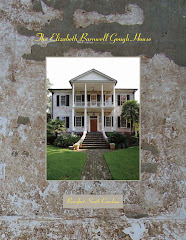
In mid-July of 1863, Union forces under the command of General Quincy Gillmore began a siege to retake Fort Sumter and capture Charleston. In the ring of Confederate defenses was Battery Wagner on Morris Island, a man-made mountain of sand, palmetto logs and cannon.
Gillmore’s intention was first to reduce the battery with prolonged shelling and then overtake it with ground forces. The battery’s sand construction, however, made it ideally suited to absorb the impact of the 9,000 shells fired into the fort in one day. When the Union finally launched its troops, with the Massachusetts 54th spearheading the attack, the battery’s strength was virtually undiminished.
In command of the Massachusetts 54th Regiment was Col. Robert Gould Shaw, the 27 year old son of one of Boston’s most prominent and ardent abolitionist families. Shaw and his men in a heroic charge stormed the battery and might have succeeded in overtaking it had reinforcements arrived in time.
Shaw was killed as were 44 of his men. Another 49 were listed as missing presumed dead and 29 were captured. Wounded totaled 150 from the initial attack and withdrawal.
In what would become a 58-day siege the Union would incur 1,515 killed, wounded or captured. The Massachusetts 54th lost nearly half its force of 600. The carnage at Battery Wagner was only a fraction of the 12,000 men the Union lost at Antietam or the more than 10,000 lost at Fredericksburg. The significance of the battle was, however, not due to its size.
With Charleston considered the breeding ground of secessionist sentiment (or cradle depending on one’s allegiance) and Fort Sumter the birthplace of the war, the symbolic value of the two was as great or perhaps even greater than their military value on both sides. By eventually prevailing at Battery Wagner, the North had achieved an important moral victory.
An equally important moral victory on Morris Island was won by the Massachusetts 54th. Although they had acquitted themselves bravely under fire prior the Battle of Battery Wagner, the high profile siege on Morris Island had earned them what they sought most – resounding proof of their quality as soldiers and as men. Their bravery had earned the respect of the white troops on Morris Island, a glowing report of their bravery in The New York Herald and praise from President Abraham Lincoln.
Please note that the material in this blog is copyrighted. It is not to be reproduced without my specific written permission.
.jpg)
